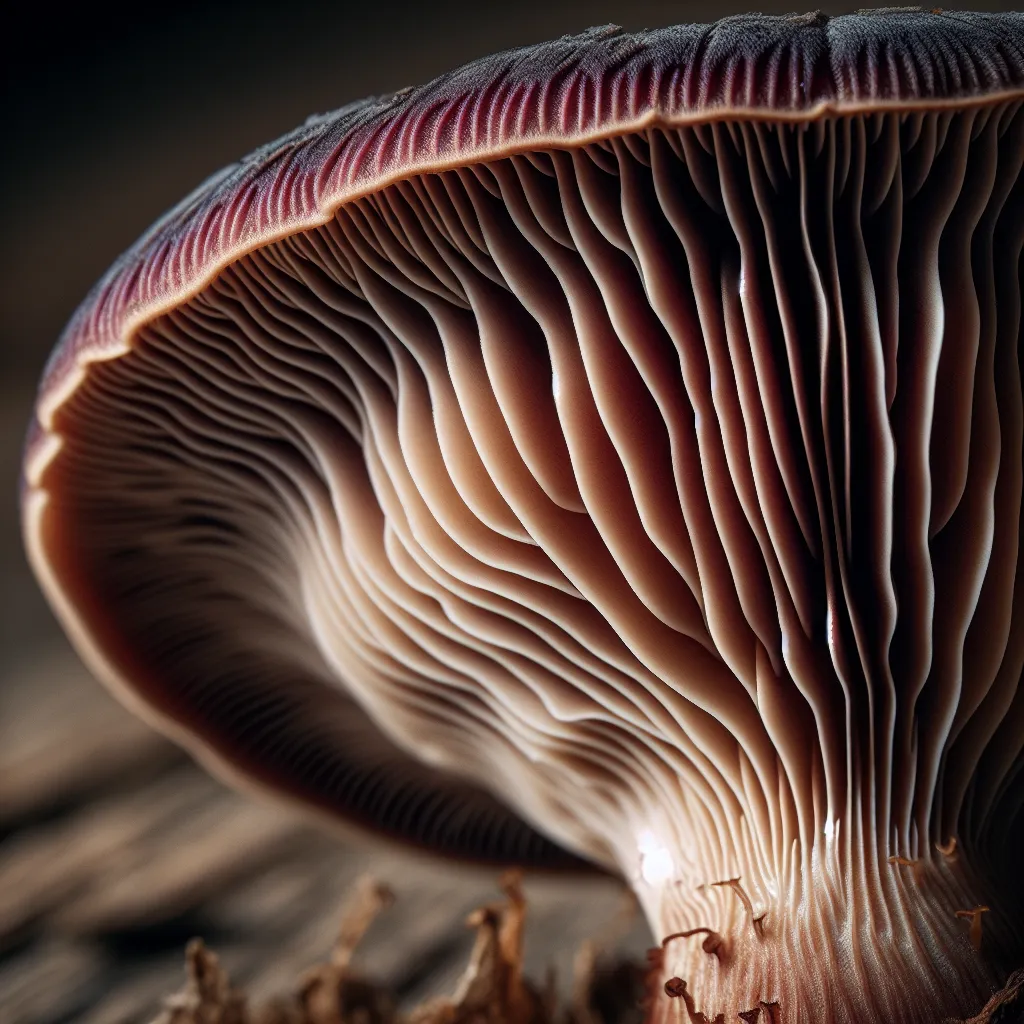Mushrooms have long been cherished for their flavors and health benefits, and among the many varieties, Wine Cap mushrooms stand out as both a culinary delicacy and a nutritional powerhouse. Known for their firm texture and earthy taste, Wine Cap mushrooms, or Stropharia rugosoannulata, offer a plethora of nutrients that contribute to a healthy diet.

What Are Wine Cap Mushrooms?
Wine Cap mushrooms are a species of edible fungus that flourish in the northeastern United States. They can be easily identified by their characteristic wine-red to brown caps that span 2 to 6 inches wide, and their white stems that measure around 3 to 6 inches in length. They are prized by many mushroom foragers, as they are easy to find, and are nutrient-dense and easy to cook with. As they mature, the caps’ color lightens, and the gills beneath transition from light to a dark black, which is a sign of maturity. This mushroom’s unique “king’s crown” ring situated below the cap and its fibrous texture set it apart from look-alike species that might be toxic.
Identifying Wine Cap Mushrooms
Accurate identification is crucial when foraging for wild mushrooms, as many edible varieties have toxic doppelgangers. Wine Cap mushrooms are distinct with their round, red-brown heads and contrasting white stems. One should always look for the absence of a bulging base at the stem and the presence of a ring below the cap. For those with experience in mushroom foraging, taking a spore print can be helpful, where Wine Cap mushrooms will leave a blackish-purple mark. For those less experienced, it is recommended to seek guidance from a knowledgeable forager or to rely on professionally cultivated mushrooms.
Nutritional Profile and Health Benefits
Wine Cap mushrooms are not only a treat to the taste buds but also a boon to your health. Here are the key nutrients and their associated health benefits:
Vitamin D
These mushrooms are a source of Vitamin D, which is vital for bone health and the regulation of calcium and phosphorus in the body. Adequate Vitamin D levels can combat osteoporosis and even play a role in improving mood and energy levels.
Calcium
Calcium, another nutrient present in Wine Cap mushrooms, is crucial not just for bones but also for the proper functioning of the heart and nerves.
Fiber
High in dietary fiber, Wine Cap mushrooms support digestive health, help regulate blood sugar and cholesterol levels, and are beneficial for weight management.
Protein
For those on a plant-based diet, these mushrooms are a great source of protein, essential for muscle building, strength, and managing appetite.
Iron
Iron is pivotal for blood health and is found in Wine Caps, albeit in a form that’s less easily absorbed than from animal sources. Nevertheless, it is an important nutrient, especially for those who do not consume meat.

The Flavor Profile of Wine Cap Mushrooms
Wine Cap mushrooms are versatile in the kitchen, with a crisp and firm texture when raw, and a flavor that’s reminiscent of raw potatoes. Their earthy undertones pair well with robust flavors like horseradish, dill, or bacon. While they can be consumed raw, cooking them tends to enhance their flavor and texture, making them tender and juicy.
Cooking with Wine Cap Mushrooms
These mushrooms are adaptable to various cooking methods, such as grilling, sautéing, baking, or broiling. Their high water content ensures a juicy outcome, especially with slow cooking methods. Marinating Wine Cap mushrooms before cooking can infuse them with delicious flavors, and they pair well with light oils, acids like lemon juice or wine, and mild herbs.

Cultivating Wine Cap Mushrooms at Home
Wine Cap mushrooms are a gardener’s friend, as they are relatively easy to cultivate. They require a small plot with a blend of wood chips, straw, or sawdust, and minimal maintenance. Planting them between April and September is ideal, with spring planting yielding the quickest growth. These fungi are low-maintenance and can return annually with little care.
For those interested in cultivation, the Cornell University Cooperative Extension and Department of Horticulture provides detailed guidance on cultivating Stropharia Mushrooms.
Caution Against Toxic Mushrooms
The thrill of foraging can sometimes be overshadowed by the risk of picking toxic mushrooms. It’s imperative to have certainty in identification before consuming wild mushrooms. When in doubt, the safest bet is to purchase mushrooms from reputable sources or to cultivate your own.
The Medicinal Aspect
While Wine Cap mushrooms are not considered medicinal, they offer significant dietary benefits that can support overall health. However, they should not be seen as a treatment for medical conditions, and one should always consult with a healthcare professional regarding a suitable diet.
For further reading on the dietary functions of mushrooms, Hobbs’ book, Medicinal Mushrooms: An Exploration of Tradition, Healing, and Culture, offers an in-depth look at the subject.
In conclusion, Wine Cap mushrooms are a delightful addition to the diet, bringing with them a host of nutrients and the potential for a variety of health benefits. Whether foraged, bought, or cultivated, they are a culinary treasure that can contribute positively to one’s well-being.
